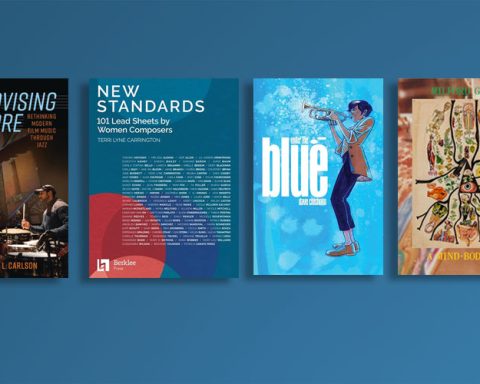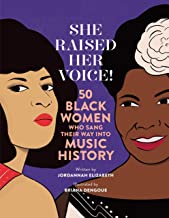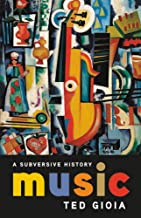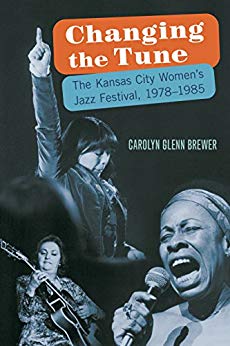 Hi-De-Ho: The Life of Cab Calloway
Hi-De-Ho: The Life of Cab Calloway
By Alyn Shipton
Oxford University Press, New York, 2010; 304 pp.; $29.95 hardcover
Review by arnold jay smith
What do we know about Cab Calloway? Zoot-suited. White tails. Hepcat scat-singing entertainer. Conducted with a long baton. And that hair. Called bebop “Chinese music.” What with all his famous sidemen, Cab’s stage persona and cavorting, his was considered a borderline jazz band, at least to his record-buying public. Legendary altercation with Dizzy Gillespie over a spitball — he did not throw it — resulting in some minor bloodletting (Dizzy pulled a knife on Cab).
According to British historian Alyn Shipton in this thorough biography, all of the above is not enough. Actually, Shipton goes beyond thorough; he sometimes plods his way through the life and recording sessions of one vastly popular entertainer. Calloway was a household name and face, and I’ve often wondered why he didn’t play more jazz considering the band’s great soloists. Now I know — it was all about Cab.
But the facts remain: Calloway had among the heppist (sic) sidemen of the Swing generation: among them Gillespie, Jonah Jones (the spitball culprit) and Doc Cheatham, trumpets; Eddie Barefield, Ben Webster and Chu Berry, reeds; Danny Barker, guitar; Milt Hinton, bass; Cozy Cole (later Panama Francis), drums, with arrangements by Walter “Foots” Thomas.
Shipton’s discussions of Calloway’s family life are enlightening. Cab was extremely supportive of his sometimes erratic offspring, taking time off from his own duties to be with them. At one point his vocalist daughter Chris — not to be confused with his guitarist grandson of the same name — left an important role in the Broadway show Hello Dolly! to elope with her fiancé, South African trumpeter Hugh Masekela. Cab, who was the co-star of the all-Negro Dolly cast, left to cajole her to return.
[pullquote]Shipton goes beyond thorough; he sometimes plods his way through the life of one vastly popular entertainer.[/pullquote]
It is well known that Cab gave short shrift to his sidemen. Solo space was rare and if you stepped out of line you were history. However, he did realize early on that Gillespie was a solo voice to be reckoned with. (Calloway’s lead trumpet Mario Bauzá said that he had called in sick and sent Gillespie in as a sub, inferring that Cab never would have hired him.)
The sidemen following Dizzy’s lead in changing the harmonies and reworking melody lines did not make for congenial relationships with their leader. Then came the cutting incident. To his credit, Cab did not have Diz arrested. Shipton points out that if it weren’t for Hinton’s physical interference, the knife wound might have been more than a buttocks bleeder. Bottom line: Dizzy was out of the band. They reconciled later.
Calloway was a womanizer of major proportions. Any wonder then that he married four times? But he never stopped lending support to his children and later grandchildren on every level, be it financial or musical. He was making big bucks even for the 1940s. Panama once told me that the band’s pay was more than adequate for his sidemen. I heard from others that Cab understood that the rent goes on even when you’re not home.
Some sidemen repaid their leader. Cab demanded that his hits be played the same way every show. His major musicians could not sit still for that. Cab gave more room to stretch forming a seven-piece-within-the-band affair called the “Cab Jivers.” Still many left, including Webster and Berry, but those who remained such as string-slapping Hinton, Cole and high-noting Jones were loyal to the charts. Berry was of particular importance. Shipton details Cab’s strong desire for Berry, who finally signs on with the proviso that Cab not play the alto sax so long as he was on the band. A sideward comment was made that most never even knew he played the instrument.
There were other hits in a very successful career before and after “Minnie The Moocher,” the Hi-De-Ho bit and her successors. But audiences white and black just wanted to hear Minnie and to shout back in response. Thus he was branded “the king of hi-de-ho.” He sounded so like a davening cantor that Jewish audiences requested Yiddish songs, some of which he had recorded, others not.
[pullquote]Cab sounded so like a davening cantor that Jewish audiences requested Yiddish songs.[/pullquote]
Shipton points out that Cab liked singing ethnic things, the blues, for example. When he recorded “Utt-Da-Zay,” Cab hit on a formula to garner a new audience, the Jews in the Catskill Mountain resorts. As Shipton points out, Cab’s — and Duke’s — manager Irving Mills’ parents came from Odessa, so Yiddish might have been the language heard in the Mills household. Also, think Damon Runyon’s Broadway characterizations as in Guys and Dolls. Formulaic was Cab’s middle name. It worked again later when he recorded a charted single with a reluctant daughter, “The Little Girl,” where he explained about life. Pure pathos.
Even though he did not star as Sportin’ Life in the original Porgy and Bess, his version of the songs from that show were heavily requested. When Sammy Davis, Jr. could not get a release from his record company to do the soundtrack of the movie, Cab was the only one who could fit the bill. (By the way, the voice of Porgy, Sidney Poitier, was dubbed as well by Robert McFerrin, the father of Bobby.)
When David Merrick asked him to do Horace Vandergelder to Pearl Bailey’s Dolly Levi Gallagher in that all black Hello Dolly! Cab’s Broadway show dreams were realized. (Bailey, who was improvising the script on stage and confounding the others, walked off the show while it was still a hit. Something about doing the same thing night after night does not sit well with improvisers. Hmm.)
Included in Hi-De-Ho are the Cotton Club-era subbing when Duke Ellington toured, as well as triumphant national and international tours with racism as a backdrop. As with Ellington, the bands slept in Pullman cars, and except for the rare incident avoided major trouble, at least according to Shipton.
As his star was fading, there were the Sesame Street and Blues Brothers cameos, even a disco version of Minnie. New audiences again, only this time it was inadvertent. Shipton describes how the Sesame Street producers saw potential in his attire and scatting vocalizations as he did “commercials” for numbers and letters. Cab jumped in enthusiastically. In The Blues Brothers he plays a janitor who, through movie magic, suddenly turns to Hi-De-Ho’ing while the Brothers are evading the police. As Shipton describes these moments, you’re there.
This is the first real biography of an important cultural icon. As such it works. However, sometimes Shipton overdoes it. He vacillates between personals and sessions. While both are integral parts of a musician’s life, Cab evidently didn’t feel soloists were important enough until later in his already burgeoning career.
The book is well footnoted and referenced, so the detailed analyses of sessions and personnel changes in the body of the text is overkill. Still, it’s about time someone took the time to find out more about Cab Calloway beyond Hi-De-Ho.






The Calloway band, throughout its long recording life, always had room for plenty of instrumentals. Chu Berry, Cab's all-time favorite, did not leave the band; he died in a car crash while on the road with the band. Just before, he was showcased on Ghost of a Chance, and Hilton Jefferson, Cab's great lead alto, as well as Tyree Glenn and Milt Hinton, also had solo showcase recordings. The Calloway band, in its prime, was the best-paying of the black big bands, and as Arnold notes, traveled in Pulmans, as did Duke's. Foots Thomas was not a leading arranger for the band, but spent many years as a key member of the reed section, doubling all saxes (tenor his best solo horn) as well as clarinets and flute. Buster Harding was a noted arranger, and one of the band's all-time best was Benny Carter's Lonesome Nights (featuring Chu) one of several charts Benny penned for Cab. Other great sidemen included trombonists Claude Jones and Keg Johnson and trumpeters Edwin Swayzee and Irving "Mouse" Randolph. BTW, Ut Da Zay was also waxed by the immortal
Leo Watson, and as for its being a Cab vehicle for Catskill gigs, don't know if this is Shipton or Arnold wisdom, bullshit in either case. Cab was good at dovening! And a great ballad singer, as noted (almost to an extreme) by Gunther Schuller in his Swing Era book.
If you want to read interesting (and far from uncritical) commentary on the band's Chu Berry period, look up Loren Schoenberg's notes for the Mosaic Chu Berry box.
The last time I intersected with Cab was on a WNYC program, I in studio, Cab on phone--both of us picked Duke's Braggin' in Brass as an all-time favorite, and he absolutely raved about Wynton, as a musician and a jazz advocate. He kept up with things. Long after he passed, he was heard at Ranger games in Madison Square Garden (may still be), as a sing-along trigger with Minnie the Moocher.
PS Do we really need Brits to tell us about our music?
Dear Dan
The Catskill reference regarding Utt Da Zay did not come from my book. Nor the idea that Cab married "four" times. Details of his two wives are given there. Forgive me, but (regarding your final comment) I thought you originally hailed from this side of the Atlantic as well! You are fully acknowledged for the help you gave me in researching the book...
I have no problem with Alyn Shipton, in particular, telling me about jazz, or Brits, French, German, Chinese, Brazilians, anyone from anywhere studying and commenting on the music. I do reserve the right to take exception to all reports and conclusions; those people who aren't from America and may miss significant aspects of US culture influencing or contextualizing jazz, but then again many American commentators miss what I think are important elements to be included in historical and analytical investigation of jazz, too. The music is and should be, I believe, open to research by whomsoever takes on the challenge. Citizens of the U.S. should indeed be encouraged to look into, listen to and appraise our native soundscape. But if we don't pick up the challenges and someone else does, it seems to me we owe a general statement of thanks to whoever puts themselves honestly, thoroughly and productively to the tasks.